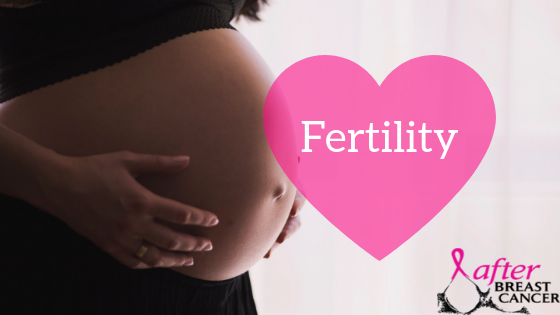
The many decisions you have to make following your breast cancer diagnosis can be overwhelming. Determining your treatment plan and next steps for cancer treatment can take up most of your mind. However, you may also have concerns for your future. If you want to have children in the future, fertility and pregnancy issues are something you want to take into consideration when determining your treatment plan. This is something that is important to talk to your doctor about to understand your fertility options.
Treatments That Affect Fertility
Some treatments for breast cancer can cause temporary infertility or increase the difficulty to get pregnant when your treatment has finished. Additionally, other treatments may result in permanent infertility or irreversible menopause which prevents you from getting pregnant.
Fertility after Hormonal Therapy
Hormonal therapy medicines can affect your menstrual cycle resulting in irregular periods, loss of periods or ovaries that no longer produce eggs. Once finished their hormonal therapy treatment, plenty of women are still fertile and their periods start again. Yet it's important to acknowledge that some women have complications getting pregnant after hormonal therapy.
Fertility after Ovarian Shutdown
Ovarian shutdown is sometimes used to treat hormone-receptor-positive breast cancer or to reduce the risk for women at extremely high risk of breast cancer. Using medicines, your ovaries may be temporarily stopped from producing estrogen. These may include medicines such as goserelin or leuprolide. These medicines cause temporary infertility but this typically returns to normal once you stop taking the medication. On the other hand, surgery to remove the ovaries will cause permanent infertility.
Fertility after Chemotherapy
Fertility after chemotherapy depends largely on your age and the types and doses of chemotherapy medication you receive. It's recommended to talk to your doctor and/or a fertility expert about the potential risk of infertility with your treatment plan as research is still limited in this area. All women produce fewer fertile eggs as they age and eventually stop making fertile eggs at menopause. Generally the younger you are, the more likely your chances of being able to have children after. Over the age of 40, women are more likely to be in menopause after chemotherapy treatment. In addition, the types and doses of chemotherapy drugs you get impact the likelihood of infertility following treatment. Cyclophosphamide, cisplatin and doxorubicin carry a medium risk of losing fertility. Whereas methotrexate, fluorouracil or vincristine are less likely to cause infertility.
Your Menstrual Cycle
Chemotherapy can damage the immature eggs in the ovaries. Some women who have normal periods after chemotherapy may be able to get pregnant with no trouble while others may have difficulty getting pregnant. When your periods return after chemotherapy, it shows that some eggs are maturing. Although, there may be a reduction in the number of eggs available. Nonetheless, getting your period doesn’t always mean that you are still fertile. You might need to see a fertility expert to help you discover if you're actually fertile. Chemotherapy may cause early menopause even if you do get your period for a short time after treatment. However, early menopause brought on by chemotherapy may only be temporary. It can take a few months or even a year or more for your periods to return.
Dosage
Higher overall doses of chemotherapy tend to increase the chances of infertility. The different combination and dosage of chemotherapy medicines may alter the medicines' effect on fertility. To reduce the chances of getting pregnant with an egg damaged by chemotherapy, it's important to wait at least 6 months to start trying to get pregnant after treatment. Chemotherapy does increase the risk of birth defects so doctors advise non-hormonal birth control throughout chemotherapy so you don't become pregnant through treatment.
Fertility after Targeted Therapy
Targeted therapy medicines are relatively new in comparison to other breast cancer treatments and so research is still limited on their effect on fertility. Targeted therapy focuses on targeting specific characteristics of cancer cells, such as a protein that allows cancer cells to grow in an abnormal way. In general, they are less likely to cause harm to healthy cells compared to chemotherapy. However, to be certain most doctors recommend waiting 6 months to a year prior to becoming pregnant after targeted therapy treatment.
Fertility after Radiation Therapy
Radiation treatment for breast cancer has little to no effect on fertility. However, if you are also receiving chemotherapy you may want to start fertility treatment before you start radiation. This treatment may involve collecting eggs, fertilizing them, and saving them until after your treatment is completed. Before radiation treatment starts, the eggs for fertility treatment should be collected to avoid them being affected by tiny amounts of radiation that may scatter from the main treatment area.
Pregnancy after Treatment

If you want to get pregnant and your diagnosis and treatment are favourable, waiting more than 6 months may not be necessary. It’s imperative that you work with your doctor to identify and understand the specifics of your own treatment plan and future plans. There are several considerations which include your personal wishes, the best interests of the child and your partner’s concerns. Together with your medical team you can work out your priorities and create a plan.
Options if You Can't Become Pregnant after Treatment
Even if you are not able to produce eggs after treatment, you can still be a parent. There are a number of options for you, including: Fertility Treatments: In vitro fertilization using donor eggs or your own eggs. You may also choose to freeze eggs or ovarian tissue for fertilization much later. Surrogacy: A woman carries your baby to term and delivers your baby for you. This could be using your partner's sperm to fertilize one or a few of your eggs. Adoption: Adoption is also available to just about anyone who would like to become a parent. It's helpful to talk to an adoption counsellor who can assist you through the process. Remember to reach out to your healthcare team if you are concerned about pregnancy and fertility issues. They can help you navigate your options. after BREAST CANCER focuses on the women who have survived, women who don’t have insurance, women who cannot have their basic needs met after a mastectomy or lumpectomy surgery. If you need support, please click here.
